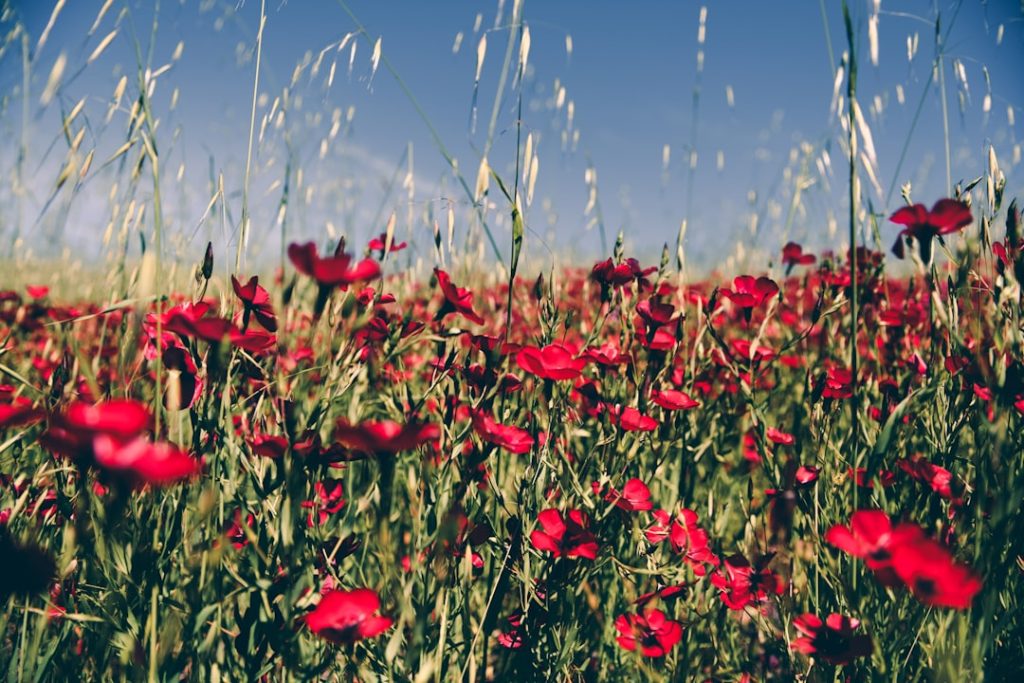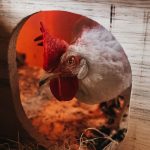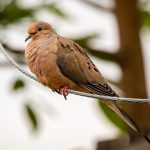Keeping ducks and chickens together can be a beneficial practice for poultry keepers. These two species possess distinct yet complementary traits that make them suitable for cohabitation. Ducks are known for their resilience, adaptability, and efficient foraging skills, while chickens are prized for their egg production, pest control abilities, and generally sociable nature.
When raised together, ducks and chickens can form a diverse and well-balanced flock, offering multiple advantages to hobbyists and small-scale farmers. This article will examine various aspects of maintaining a mixed flock of ducks and chickens, including housing requirements, nutrition, health management, flock dynamics, egg production, and the overall advantages of this combined approach to poultry keeping.
Table of Contents
- 1 Housing and Coop Requirements for Ducks and Chickens
- 2 Feeding and Nutrition for Ducks and Chickens
- 3 Health and Disease Management for Ducks and Chickens
- 4 Social Dynamics and Behavior of Ducks and Chickens
- 5 Egg Production and Management for Ducks and Chickens
- 6 Benefits of Keeping Ducks and Chickens Together
- 7 FAQs
- 7.1 Can ducks and chickens live together?
- 7.2 What are the benefits of keeping ducks and chickens together?
- 7.3 What should be considered when keeping ducks and chickens together?
- 7.4 Do ducks and chickens require the same type of feed?
- 7.5 How should I introduce ducks to an existing chicken flock?
- 7.6 What are some potential challenges of keeping ducks and chickens together?
Key Takeaways
- Ducks and chickens can be kept together, but it’s important to understand their specific needs and behaviors to ensure a harmonious coexistence.
- Ducks and chickens can share a coop, but it’s important to provide separate nesting areas and ensure the coop is spacious enough to accommodate both species.
- Ducks and chickens have different dietary requirements, so it’s important to provide a balanced diet that meets the needs of both species.
- Ducks and chickens can be susceptible to different diseases, so it’s important to implement a comprehensive health management plan to keep both species healthy.
- Ducks and chickens have different social dynamics and behaviors, so it’s important to provide enough space and resources to prevent conflicts and ensure their well-being.
Housing and Coop Requirements for Ducks and Chickens
Coop Design and Requirements
Ducks require access to water for swimming and foraging, while chickens need a dry and secure space for nesting and roosting. Therefore, the ideal coop for a mixed flock should include both a water source, such as a shallow pond or kiddie pool for the ducks, as well as traditional nesting boxes and roosting bars for the chickens. The coop should also provide protection from predators and the elements, with adequate ventilation and insulation to ensure the comfort and well-being of both ducks and chickens. Additionally, it’s important to provide ample space for the flock to move around freely, as overcrowding can lead to stress and aggression among the birds.
Providing a Safe and Comfortable Living Environment
By creating a well-designed and spacious coop, poultry keepers can ensure that their ducks and chickens have a safe and comfortable living environment that meets all of their needs.
Outdoor Space and Exercise
In addition to the coop, outdoor space is also an important consideration when keeping ducks and chickens together. Ducks are natural foragers and enjoy grazing on grass, while chickens are skilled at scratching and pecking for insects. Therefore, it’s beneficial to provide a large outdoor area where the birds can roam and engage in their natural behaviors. This can be achieved through the use of a secure run or fenced-in yard that offers plenty of room for the ducks and chickens to explore, exercise, and forage.
Feeding and Nutrition for Ducks and Chickens

Feeding a mixed flock of ducks and chickens requires careful consideration of each species’ dietary needs. Ducks are omnivorous and require a diet that includes a balance of grains, greens, insects, and aquatic plants. They also need access to water for drinking and foraging, as well as grit to aid in digestion.
Chickens, on the other hand, are primarily herbivorous and require a diet that is high in protein to support egg production and overall health. Their diet should consist of a balanced feed that includes grains, seeds, and supplemental protein sources such as mealworms or kitchen scraps. When feeding a mixed flock, it’s important to provide separate feeding stations for the ducks and chickens to prevent competition and ensure that each species receives the appropriate nutrition.
Additionally, offering a diverse range of foods can help meet the dietary needs of both ducks and chickens while also providing enrichment and stimulation for the birds. By carefully managing the feeding and nutrition of a mixed flock, poultry keepers can ensure that their ducks and chickens remain healthy, active, and productive.
Health and Disease Management for Ducks and Chickens
Maintaining the health of a mixed flock of ducks and chickens requires proactive disease management and regular monitoring for signs of illness or injury. Ducks are generally hardy birds but can be susceptible to certain diseases such as duck viral hepatitis, duck plague, and botulism. Chickens are also prone to various diseases including coccidiosis, infectious bronchitis, and avian influenza.
To prevent the spread of disease within a mixed flock, it’s important to practice good biosecurity measures such as quarantining new birds, maintaining clean living conditions, and monitoring the health of the flock on a regular basis. In addition to disease management, it’s important to provide routine veterinary care for ducks and chickens to ensure that they remain healthy and free from illness. This may include vaccinations, deworming, and regular health check-ups to identify any potential issues early on.
By staying proactive about health and disease management, poultry keepers can help safeguard the well-being of their mixed flock of ducks and chickens.
Ducks and chickens have different social dynamics and behaviors that can influence their interactions within a mixed flock. Ducks are generally more independent and less hierarchical than chickens, often forming small groups or pairs rather than a strict pecking order. They are also known for their calm and gentle demeanor, making them compatible with other poultry species.
Chickens, on the other hand, are more social and form complex hierarchies within their flock. They can be territorial and may exhibit aggressive behaviors such as pecking or bullying. When keeping ducks and chickens together, it’s important to observe their social dynamics and behavior to ensure that they coexist peacefully.
Providing ample space, resources, and enrichment can help minimize competition and reduce the likelihood of aggression between the birds. Additionally, introducing new birds gradually and monitoring their interactions can help prevent conflicts within the flock. By understanding the social dynamics and behavior of ducks and chickens, poultry keepers can create a harmonious living environment for their mixed flock.
Egg Production and Management for Ducks and Chickens

Benefits of Dual Egg Production
One of the key benefits of keeping ducks and chickens together is the potential for dual egg production. Ducks are prolific layers, with some breeds capable of laying up to 300 eggs per year. Their eggs are larger than chicken eggs and have a rich flavor that is prized by many culinary enthusiasts. Chickens are also valued for their egg-laying capabilities, with some breeds laying up to 280 eggs per year.
Managing Egg Production in a Mixed Flock
By keeping ducks and chickens together, poultry keepers can enjoy a diverse range of eggs that vary in size, color, and flavor. Managing egg production in a mixed flock requires providing suitable nesting boxes for both ducks and chickens to lay their eggs. Ducks prefer to lay their eggs in secluded areas near water, while chickens prefer elevated nesting boxes that offer privacy and security.
Providing Suitable Nesting Spaces
By providing appropriate nesting spaces for both species, poultry keepers can ensure that their ducks and chickens have a comfortable environment for laying eggs. Additionally, collecting eggs regularly can help prevent broodiness in both ducks and chickens while also ensuring that the eggs remain clean and intact.
Benefits of Keeping Ducks and Chickens Together
There are numerous benefits to keeping ducks and chickens together in a mixed flock. Ducks are excellent foragers with a voracious appetite for insects, slugs, snails, and other pests. By allowing ducks to roam freely with chickens, poultry keepers can benefit from natural pest control without the need for chemical pesticides.
Additionally, ducks are known for their ability to thrive in wet environments, making them well-suited for areas with ponds or water features where chickens may not fare as well. Chickens also offer several benefits when kept with ducks. They are efficient at turning over soil through scratching, which can help aerate the ground and control weeds.
Chickens also provide companionship for ducks and can help protect them from predators with their alert nature. Furthermore, by keeping ducks and chickens together, poultry keepers can enjoy a diverse range of eggs that vary in size, color, and flavor. In conclusion, keeping ducks and chickens together can be a rewarding experience that offers numerous benefits for poultry enthusiasts.
By understanding the specific needs of each species in terms of housing, feeding, health management, social dynamics, behavior, egg production, as well as the overall benefits of this unique partnership, poultry keepers can create a harmonious living environment for their mixed flock of ducks and chickens. With careful planning and management, keeping ducks and chickens together can result in a thriving and diverse poultry operation that provides natural pest control, soil management, companionship between species, as well as a bountiful supply of eggs for personal consumption or sale.
If you’re considering keeping ducks and chickens together, you may want to check out this article on chicken coop run plans to ensure that you have the appropriate space and housing for both types of poultry. It’s important to provide a safe and comfortable environment for all of your birds, and this article can help you plan and build the right coop for your mixed flock.
FAQs
Can ducks and chickens live together?
Yes, ducks and chickens can live together harmoniously as long as they have enough space, access to water, and proper shelter.
What are the benefits of keeping ducks and chickens together?
Keeping ducks and chickens together can provide mutual protection from predators, as well as companionship and social interaction for both species.
What should be considered when keeping ducks and chickens together?
It’s important to provide separate feeding and watering stations for ducks and chickens, as well as ensuring that the coop and yard are suitable for both species’ needs.
Do ducks and chickens require the same type of feed?
While ducks and chickens can eat some of the same types of feed, ducks have different nutritional requirements, particularly for niacin, so it’s important to provide appropriate feed for both species.
How should I introduce ducks to an existing chicken flock?
Introducing ducks to an existing chicken flock should be done gradually, allowing the birds to become familiar with each other through a wire barrier before allowing them to interact directly.
What are some potential challenges of keeping ducks and chickens together?
Some potential challenges include different housing and dietary needs, as well as the potential for ducks to create wet and muddy conditions in the coop and yard. Regular maintenance and observation can help mitigate these challenges.
Meet Walter, the feathered-friend fanatic of Florida! Nestled in the sunshine state, Walter struts through life with his feathered companions, clucking his way to happiness. With a coop that’s fancier than a five-star hotel, he’s the Don Juan of the chicken world. When he’s not teaching his hens to do the cha-cha, you’ll find him in a heated debate with his prized rooster, Sir Clucks-a-Lot. Walter’s poultry passion is no yolk; he’s the sunny-side-up guy you never knew you needed in your flock of friends!







